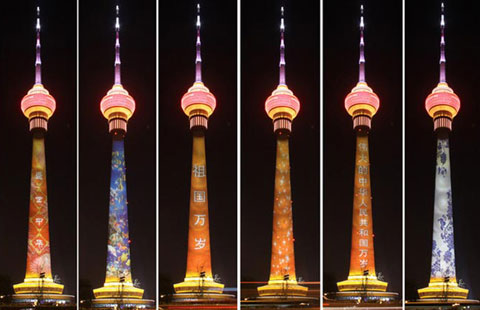US sanctions raise concerns for foreign investors
Updated: 2014-04-30 09:29
(Agencies)
|
||||||||
But much of Russia's remaining oil and gas is expensive and difficult to reach, found either in the harsh climate of Arctic seas or trapped in tight rock onshore. Western companies have the capital and the technical expertise to help Rosneft produce that oil and gas _ and generate cash that helps the Russian government fund its operations.
Adnan Vatansever, a senior lecturer at the Russia Institute at King's College London, estimates that half of Russia's federal revenue comes from oil and gas sales.
Sechin has been president of Rosneft since the early 1990s. He is seen as the mastermind behind the 2003 takeover of the private oil company Yukos, whose founder, Mikhail Khodorkovsky, was jailed following disputes with the Kremlin. Rosneft seized Yukos' most valuable assets, making it Russia's largest company.
Targeting Sechin, a Putin confidante, is seen as a warning shot, signaling that the West could also go after Russia's biggest companies if Moscow doesn't help to resolve the crisis in Ukraine.
The fact that such sanctions might have an impact on Western interests gives them more heft, said Philip Hanson, associate fellow in the Russia and Eurasia program at the think tank Chatham House.
"Sanctions are a message," he said. "They are an instrument that are somewhere between pure diplomacy _talking _ and warfare."
At the same time, Western governments also would prefer to avoid sacrificing important investments made by their own companies, or to disrupt oil and gas supplies in a way that would push energy prices higher around the world.
"The goal of these actions is not to punish energy companies, it's to get the Kremlin to think twice," says Molchanov.
Even sanctions against just Sechin complicate life for companies like BP. Because he's an American, BP CEO Bob Dudley may be barred from communicating with Sechin, raising practical questions about how they will continue to work together. For now, Dudley plans to continue to attend board meetings.
Exxon has signed agreements with Rosneft for "a series of multibillion-dollar exploration projects," the company says on its website. Molchanov wrote in a research note last week that Russia comprised 6 percent of Exxon's oil and natural gas production in 2013.
Sanctions and the Ukrainian crisis are already having an impact on foreign companies, if indirectly. Fears that sanctions will slow the Russian economy have caused the ruble to drop sharply in recent months, cutting the value of Russian earnings and assets.
BP said its earnings from its stake in Rosneft fell sharply in the first quarter because of the ruble's decline. Earnings from BP's stake in Rosneft fell to $271 million in the quarter ended March from $1.08 billion during the fourth quarter of last year.
Another effect of the sanctions is that foreign investors are delaying or pulling out of deals in Russia out of concern that further sanctions or turmoil will unravel them.
"The general effect of restricting the flow of international credit to Russia has had quite a chilling effect not just to Russia itself but in the companies that deal with them," said Chatham House's Hanson.
Most Viewed
Editor's Picks

|

|

|

|

|

|
Today's Top News
Forum trends: Chinese foods you must not miss
Obama's Asia trip fails to achieve goals, experts say
US sanctions worry oil investors
Xi calls for anti-terror tools
High score: Xbox One to hit China
Geffen interested in buying Clippers
Russia's FM scolds West for imposing sanctions
Putin declines tit-for-tat sanctions against West
US Weekly

|

|
















